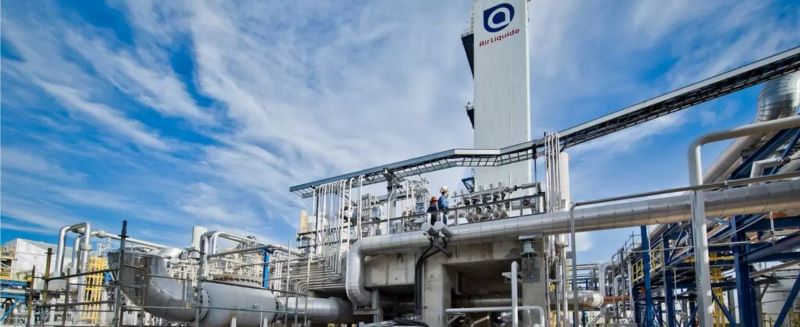This will enable Air Liquide to increase its oxygen production capacity by 50% in Texas

Air Liquide plans to invest up to US$ 850 million to build, own and operate four Large Modular Air separation units as well as related infrastructure in the framework of a long-term binding agreement with ExxonMobil for its planned low-carbon hydrogen project in Baytown, TX.
This will enable Air Liquide to increase its oxygen production capacity by 50% in Texas. Pending final investment decision, this major project would mark the largest industrial investment in the history of the Air Liquide Group.
This new Air Liquide Baytown low-carbon platform would serve primarily ExxonMobil with vast amounts of low-carbon oxygen and nitrogen, as well as significant volumes of argon and rare gases such as krypton and xenon for Air Liquide’s other customers. Thanks to low carbon electricity supply and Air Liquide’s innovative solution, the CO2 footprint of oxygen production will be reduced by two-thirds. In line with Air Liquide’s Advance strategic plan, this decarbonization project will also contribute to enhancing the Group’s Industrial Merchant footprint in the U.S.
Triggered by ExxonMobil’s enormous need for oxygen at their low-carbon hydrogen project in Baytown, TX, Air Liquide has been selected to establish a low-carbon industrial gas platform. Pending the project’s final investment decision, Air Liquide would build, own and operate four new Large Modular Air (LMA) separation units at ExxonMobil’s site in Baytown, in order to produce and supply:
• a record volume of 9,000 metric tons per day of oxygen for the production of low-carbon hydrogen
• and up to 6,500 metric tons per day of nitrogen to support the synthesis of low-carbon hydrogen into low-carbon ammonia as a source of low-carbon energy for the export market.
The agreement also enables leveraging on Air Liquide’s existing pipeline infrastructure to foster the development of low-carbon hydrogen.
In addition, thanks to large volumes, the LMA units will also produce high amounts of argon, as well as krypton and xenon, enabling the Group to strengthen its offering to customers in the rare gases market.
These LMA plants provide a step-change both in terms of production output and energy consumption optimization, as they use 25% less electricity to make each tonne of oxygen. In addition, these LMA plants are planned to be primarily powered by renewable and low-carbon electricity, further reducing the carbon footprint of the project.
The investment decision for Air Liquide’s Baytown Low Carbon Platform will be linked to the development of ExxonMobil’s low-carbon hydrogen project which is subject to supportive government policy, necessary regulatory permits and market conditions. ExxonMobil’s project is expected to capture and permanently store 7 million tons of CO2 per year.
Air Liquide is a market leader in the production of air gases in the U.S., with a strong presence and network of pipelines on the Gulf Coast. Leveraging on this existing footprint, the Group would be able to expand its presence in the region and beyond through its Large Industry and Industrial Merchant (Airgas) activities.
François Jackow, CEO of Air Liquide, said: "Our Baytown Low Carbon platform project demonstrates our capacity to innovate and leverage on our footprint in the U.S. to actively contribute to the decarbonization of the industry. Through this new agreement with ExxonMobil, Air Liquide is proud to support the development of what is poised to be the world’s largest low-carbon platform while reinforcing its gas offering in this key industrial basin. In line with our strategic plan ADVANCE, this major investment is a concrete example of our determination to embark on first-mover projects to contribute to the emergence of a low-carbon future.”
Subscribe to our newsletter & stay updated.